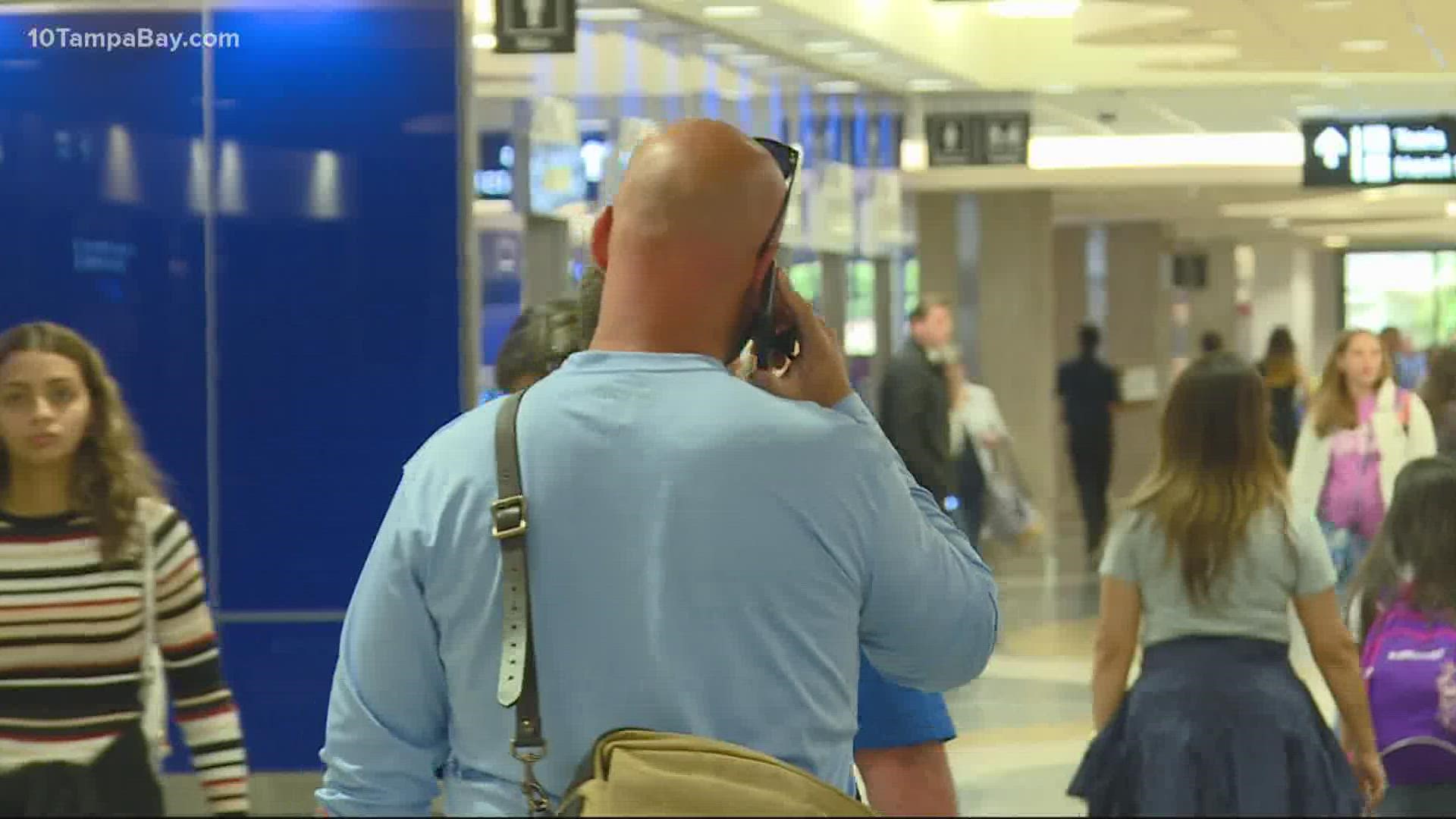TAMPA, Fla. — 5G broadband networks are set to be deployed across the United States in January 2022, just a few weeks away. But the Federal Aviation Administration says there is an issue with that rollout.
The systems pilots use to land safely rely on a spectrum adjacent to that in which 5G services also use. To put it simply, the FAA is worried rolling out 5G will make it more difficult for pilots to safely land.
Most commercial planes use a radio altimeter to determine how far they are from whatever is below them. This device helps pilots land when weather conditions are less than favorable, say in instances of fog.
Mark Weinkrantz is an aviation expert and former commercial airline pilot. He said the new FAA directives can ultimately mean there will be scenarios in which planes cannot take off because they will not be able to safely land.
“The 5G technology that’s being sent out by the cell phone companies operates with a radio band that is close to but not identical to what the radar altimeter uses on the aircraft," Weinkrantz said. "So if there is some spillover, the concern is that it could interfere with the signals during a critical phase in the flight.“
The FAA's new directives state radio altimeters can not be relied on to do their job if they're experiencing interference from wireless broadband. The below portion of the FAA directive highlights the importance of radio altimeters:
"Many operators need to be able to land in low visibility conditions. These operators employ specially certified equipment and flight crew training in order to be able to fly closer to the ground during approach in instrument conditions, in some cases all the way through the landing phase, without visual reference to the runway environment. These operations can only be conducted with reference to actual height above the ground, as measured by a radio altimeter.
An unsafe condition exists that requires the immediate adoption of this AD without providing an opportunity for public comments prior to adoption. The FAA has found that the risk to the flying public justifies forgoing notice and comment prior to adoption of this rule because radio altimeter anomalies that are undetected by the aircraft automation or pilot, particularly close to the ground, could lead to loss of continued safe flight and landing. The urgency is based on C-Band wireless broadband deployment, which is expected to occur in phases with operations beginning as soon as January 5, 2022."
What's tricky here is that the Federal Communications Commission oversees the rollout of 5G. Not the FAA. On the FAA website, the following statement is posted:
"The FAA believes the expansion of 5G and aviation will safely co-exist. Today, we took an important step toward that goal by issuing two airworthiness directives to provide a framework and to gather more information to avoid potential effects on aviation safety equipment."
While steps are being taken to keep air safety a priority, it is not without consequence.
“You have huge industries here that have competing interests in terms of getting their products out," Weinkrantz said. "The airline industry is what we’ve all grown to rely on for a commerce industry and for travel pleasure, and the cell phones we’ve come to rely on for convenience.“
Airline for America, or A4A, is warning the new FAA directives will impact thousands of passengers.
"The expected costs to the flying public, shippers, and airlines are significant as the AD (airworthiness directive) will materially disrupt airline operations," A4A said in a statement. "For example, if the AD were applied in arrears to A4A members’ 2019 operations, approximately 345,000 passenger flights, 32 million passengers, and 5,400 cargo flights would have been impacted in the form of delayed flights, diversions, or cancellations."
Carter Wang is the managing director of A4A. He says these estimates are conservative and do not account for the domino effect each flight delay or cancellation may cause.
“The FAA’s airworthiness directive identifies safety concerns and potential restrictions that will be highly disruptive to the National Airspace System, the traveling public and the supply chain," Wang said. "We continue to urge the FCC and FAA to work together on a practical solution that will enable the rollout of 5G technology while prioritizing safety and avoiding any disruption to the aviation system.”
10 Tampa Bay has reached out to Tampa International Airport, St. Petersburg Clearwater International Airport, and Sarasota Bradenton International Airport for comment. Those requests have not yet been answered.

